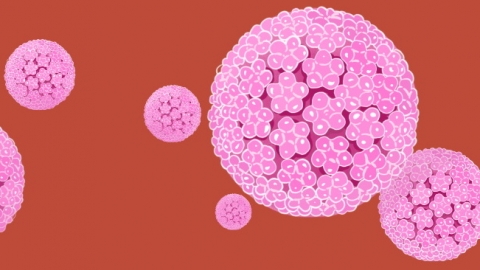Is HPV positive the same as having AIDS?
Generally speaking, HPV positive does not mean HIV infection. Detailed analysis is as follows:
HPV refers to human papillomavirus, a double-stranded DNA virus that mainly infects skin and mucosal epithelial cells, potentially causing genital warts, cervical cancer, and other lesions. HIV, on the other hand, is caused by the human immunodeficiency virus, a retroviral RNA virus that primarily attacks CD4+ T lymphocytes in the immune system, leading to immune dysfunction.
Human papillomavirus infection mainly causes proliferative lesions of the skin and mucous membranes, and can be categorized into low-risk and high-risk types. Low-risk HPV can lead to benign lesions such as genital warts, while persistent infection with high-risk HPV is closely associated with the development of malignant tumors such as cervical cancer. In contrast, HIV infection severely damages the patient's immune system, making the individual susceptible to various opportunistic infections and tumors.

Although both HPV and HIV can be transmitted through sexual contact, and mother-to-child vertical transmission is also a shared route, their mechanisms of transmission and pathogenesis are entirely different. HPV is mainly transmitted through skin or mucous membrane contact, whereas HIV is transmitted through blood, mother-to-child transmission, and sexual contact, with the HIV virus leading to immune system failure.
If only HPV positive is detected, there is no need to panic about HIV infection; however, regular cervical cancer screening is necessary. If there is a risk of HIV infection, such as unprotected sex or needle sharing, it is recommended to undergo specific testing separately.






